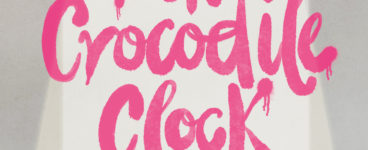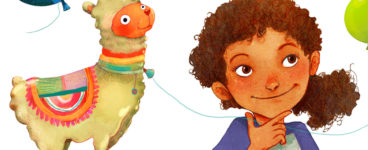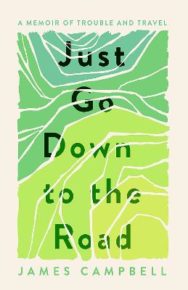‘”I was fourteen when I was caught stealing books for the first time.”’
David Robinson finds much to surprise him in reading the memoir from the acclaimed writer and literary critic, James Campbell.
Just Go Down the Road: A Memoir of Trouble and Travel
By James Campbell
Published by Polygon
‘I was fourteen when I was caught stealing books for the first time.’ That’s the first sentence in James Campbell’s memoir Just Go Down to the Road, and to people like me who have never met him and who know him only as a biographer of James Baldwin, long-time TLS columnist and author, it might seem to herald a relatively predictable tale. The stolen books wouldn’t be significant, I thought, merely way markers in a bibliophile’s life: particular books he couldn’t resist because he couldn’t resist books in general. And so I settled down to read about what I guessed would be a largely books-based life, heavy with literary anecdotes and insights into the works of other writers but experientially anaemic.
Well, I guessed wrong, the way you do when you forget how few lives run in predictable lines. By the time Campbell stole those books, for example, he was spiralling downwards at his Glasgow comprehensive, a lower stream each year. The police held him and his friend in a cell for a few hours until he stopped lying about his name, but it didn’t deter them from subsequently planning to mug random women pedestrians on Victoria Road (though mercifully they both chickened out in time). When his forgery of exam results on his school report card was exposed, rather than study for his O Grades, he signed up for a six-year apprenticeship as a printer. Here at last his life was running on straight lines – literally, because his job is to look after an enormous machine that rules lines on paper.
At this stage, Campbell was a long way from any real interest in books, never mind university or the TLS. School had left no mark on him, and even when he went to night school to study for O Grade English, there was no sign of any inspirational teacher. But this was 1969, and other forces were at work, pulling the 19-year-old Campbell away from attending to the ink levels on the Shaw Pen Ruling Machine. For one thing, there was Music. For another, there was Abroad.
Both came together at the Scotia Bar. This, he says, was his university, where he gained ‘an education in which the teacher is unaware that the pupil is under his spell’. First and foremost, the Scotia was the ‘dead centre of the Glasgow folk scene’, a place where you might bump into Billy Connolly, Gerry Rafferty, Hamish Imlach or Matt McGinn, but could always rely on encountering Big Mick Broderick of the Whistlebinkies or someone else who’d give you tips on how to play the latest Bert Jansch tune. And behind the traditionalists, with their protest songs and centuries-old ballads, were the new counterculturist crew – people like John Martyn and Robin Williamson.
There was another element to the counterculture too, too often downplayed by social historians: – the pull of what Campbell calls ‘The Land of Away’. Even before the first Interrail passes went on sale in March 1972, the Land of Away beckoned. It was far away too: if not India (the Beatles, as what we’d now call global influencers, made everything Indian sexy, from spirituality to sitars, pyjama trousers to yoga) then, at least, Morocco. There weren’t – yet – guidebooks to the hippie trails, just rumours about where to go, how to hitch there, where you can rely on the kindness of strangers and where you should watch out for the police.
I am three years younger than Campbell, but that still makes me old enough to vouch for the accuracy of his observations. I too travelled without maps (Lord knows how) to the Moroccan fishing port of Essouira purely on hearsay that it was a friendly place for long-hairs and picked out that (too true) warning about the heavy-handedness of the Yugoslav border police towards our hippyish horde. He is similarly spot-on about those odd, non-geographical and now rather embarrassing primers for our travels that were found on every student bookshelf – Timothy Leary, Jeff Nuttall, anything by Herman Hesse – and the ubiquity of fat cushions on the floor: as he points out, ‘People could go for months without sitting on a chair’. Strange days indeed – yet all this ultra-cheap travel (no hotels, just night trains and sleeping bags under the stars) surely opened minds as well as broadened them for a whole generation of cut-price bohemians.
Campbell’s time ‘on the road’ was more extensive than mine, but so was his naivety, and he was repeatedly ripped off. This forced him to get a job looking after horseback tourists on the Greek island of Spetsai, and work at an Israeli kibbutz. Here – astonishingly – he met the reclusive Peter Green, who had gone there after giving away the fortune he made as Fleetwood Mac’s star guitarist (younger readers please check out ‘Oh Well’ on YouTube).
In both places, he was trying to write a novel heavily influenced by Alexander Trocchi’s Book of Cain, and when he returned to Glasgow, the editor of the university magazine commissioned him to interview his hero. Although his 4,000-word article was then probably the longest study of Trocchi’s work to date, Campbell soon became disillusioned by him, not least when he discovered that he had forced his wife into prostitution to fund his heroin habit.
The ability to see through one’s erstwhile heroes is, of course, the mark of a critically maturing mind, and by 1974 Campbell was ready to enrol as an English student at Glasgow. Everything else followed from this: on graduating he became editor of New Edinburgh Review, commissioned James Baldwin to write an essay on jazz, became his friend and subsequent biographer, started reviewing for the New Statesman, and published his first book.
If he tends to gallop through this part of his life, perhaps it’s because the course he has set on has by now become clear. It’s when that clarity isn’t there that narrative tension arises. In this regard, there are parallels with Mark Hodkinson’s Nobody Round Here reads Tolstoy, which Canongate published earlier this year. Hodkinson, also a fully-fledged littérateur, grew up in a house with even fewer books (just one) than Campbell, and was educated at a Rochdale sink school. With him, it was journalism and a passion to collect that turned the key, but there’s the same fascinating exploration of the tangled roots of bibliophilia.
All of which takes us to the books themselves. Though Campbell places more emphasis on the friends who introduced them to him, books provided their own intellectually propulsive discoveries. His girlfriend gave him a copy of Lord of the Flies, and as he read it he began to see that it contained a second story – call it an allegory – that, though invisible, might be just as important as the main one, and that both could stand the weight of discussion and even disagreement. ‘A button had been pushed inside my head,’ he writes.
I’ve tried to remember which book pushed that button in my own mind, and I’ve drawn a blank. Maybe my own way into books was too predictable – dutiful child, teacher parent, weekly library visits, good at exams. It would be too boring for words. James Campbell’s stylishly written story – dusted with delinquency, buffed with bohemianism, cutting into Seventies counterculture – is very much the opposite.
Just Go Down the Road by James Campbell is published by Polygon, priced £14.99.
ALSO IN THIS ISSUE

 The Tick and the Tock of the Crocodile Clock
The Tick and the Tock of the Crocodile Clock
‘But a poet is something other people identify you as. You can’t just call yourself a poet; other pe …

 A Billion Balloons of Questions
A Billion Balloons of Questions
‘Supporting bilingualism is crucial in allowing a child to connect with that side of their heritage …













